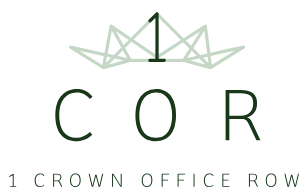Global Law Experts top search results to tackle law in Family Arbitration: Tailored solutions for every legal challenge. Let experienced lawyers guide you through legal disputes and challenges with law insights and expertise knowledge. Our members hold proven strategies and solutions for every complex legal need.

Since 2010, the Global Law Experts annual awards have been celebrating excellence, innovation and performance across the legal communities from around the world.


No results available Reset filters?
The Family Arbitration Law Practice is a specialized area of Alternative Dispute Resolution that provides a private, binding process for resolving family law disputes outside of the public court system. This practice offers a confidential forum for couples and families to settle contentious issues, particularly those related to financial matters such as the division of complex assets and the determination of spousal support. Practitioners in this field may serve as the neutral arbitrator who adjudicates the dispute, or they may act as legal counsel representing a party throughout the arbitration process. The practice covers the entire arbitral lifecycle, from drafting the initial agreement to arbitrate, through the presentation of evidence in hearings, to the final, legally binding award issued by the arbitrator, which can then be enforced like a court order.
Family arbitration is a private and confidential method of dispute resolution where the involved parties voluntarily agree to submit their conflict to a qualified, neutral third party, known as an arbitrator. The arbitrator acts as a private judge, hearing arguments and reviewing evidence from both sides in a structured setting. After the hearing, the arbitrator makes a final and legally binding decision, known as an award, which resolves the issues in the dispute.
The key difference lies in the role of the neutral third party and the outcome of the process. In mediation, the mediator is a facilitator who helps the parties negotiate and reach their own voluntary agreement; the mediator has no authority to impose a decision. In arbitration, the arbitrator acts as a judge. They evaluate the evidence and the law and then make a final, legally binding decision for the parties. Arbitration is an adjudicative process, while mediation is a facilitative one.
The main benefits of using arbitration are confidentiality, speed, and expertise. Unlike public court proceedings, arbitration is a private process, which is often crucial for sensitive family matters. The parties also have greater control over the timeline, making it a generally faster process than waiting for court dates. Additionally, the parties can select an arbitrator who has specific expertise in family law or complex financial matters, ensuring their case is decided by a specialist.
Yes, the decision made in family arbitration, known as an arbitral award, is legally binding on both parties. In most legal systems, a valid arbitration award has the same legal weight and enforceability as a court judgment. If a party fails to comply with the terms of the award, the other party can typically have it confirmed and enforced by a court. The grounds for challenging or appealing an arbitration award are usually very narrow and limited.
Global Law Experts is dedicated to providing exceptional legal services to clients around the world. With a vast network of highly skilled and experienced lawyers, we are committed to delivering innovative and tailored solutions to meet the diverse needs of our clients in various jurisdictions.

Send welcome message